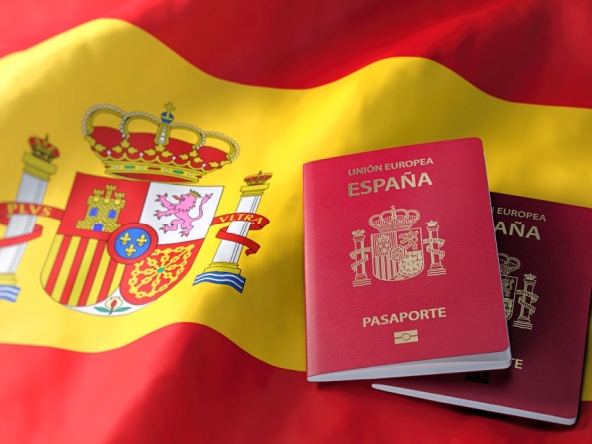Relatives of people exiled during Franco's dictatorship can claim citizenship under the Democratic Memory Act
Hundreds of thousands of citizenship applications are expected in Spain as relatives of the country's exiles will benefit from a new historic memorial law aimed at addressing the legacy of Francisco Franco's dictatorship.
The Democratic Memory Law, also informally known as the "Sun Tzu Law," allows the descendants of Spaniards who were forced into exile during the 1936-39 civil war and subsequent dictatorship to acquire Spanish citizenship.
It is estimated that about 500,000 Spaniards went abroad during this period. Spain's foreign ministry is sending additional staff to the consulates of some Latin American countries in response to the expected flood of inquiries. Cuba, Argentina, Mexico and Venezuela are the most anticipated countries.
Others who can apply for citizenship under the new legislation are the children of Spanish women who lost their citizenship by marrying foreigners during the Franco regime. Another group of people who may benefit from the law are those whose parents were 21 when they obtained Spanish citizenship under the Early Historical Memory Law passed in 2007. Since they were adults at the time, these people could not apply for citizenship with their parents. This means that in many cases, family members acquire nationality but children do not, or younger children acquire nationality but older children do not.
The new rules granting Spanish citizenship are just part of a law designed to settle once and for all all the problems surrounding the civil war and four decades of dictatorship that followed.
The Democratic Memory Act outlawed the Franco regime and made its public defense a criminal offense. She demanded that monuments and street signs, such as those named after Franco or his generals, be removed to glorify the dictatorship. The law also opens the door to investigations of human rights violations during and immediately after the administration.
In addition, legislation states that the state is now responsible for identifying and exhuming the remains of Franco's victims, which remain in unmarked graves, estimated by activists to number more than 100,000. So far, voluntary organisations have carried out excavations.
After parliament approved the law in the summer, the leftist coalition government of Pedro Sánchez said: "We are turning the page on the darkest episode of our history, the dictatorship and the civil war". It said the legislation embraced the transition to democracy and the constitution.





